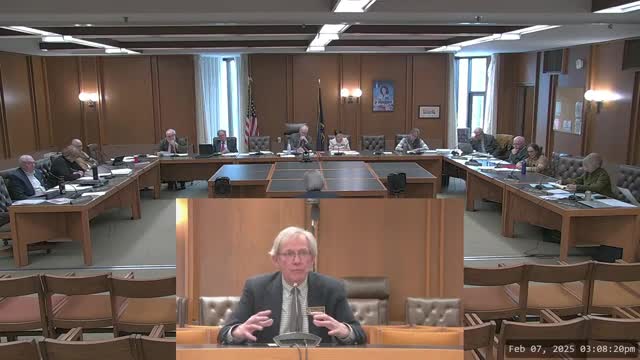Bill to form joint study committee on alternatives to property‑tax financing for schools wins cautious interest
Get AI-powered insights, summaries, and transcripts
Subscribe
Summary
HB 491 would create a joint legislative study committee to examine how New Hampshire funds public education and how to reduce reliance on local property taxes; sponsors said the panel would model options while lawmakers asked for a narrower, more defined charge and clarified appointment authority.
The committee heard HB 491, a proposal to create a joint House‑Senate committee to study alternative revenue sources and how to rebalance the state’s public‑education financing away from heavy local reliance on real‑property taxes.
Representative Spilsbury, prime sponsor for the bill, told the panel the idea is to place options on the table — including revenue sources, revenue allocation and policy tradeoffs — so the legislature can make more integrated, long‑term decisions rather than ad‑hoc changes. He said the study would model tradeoffs, cost impacts and distributional effects and possibly recommend statutory language for consideration in the second year of the biennium.
Members sought clarification on the committee’s charge and the appointment process: several asked the bill to specify who appoints members and whether the House Education Funding Committee, the House Ways & Means Committee or Senate Finance should be represented. Representative Spilsbury said he was open to refining membership and adding clearer, narrower study questions to avoid a diffuse mandate. Representative McGuire and others suggested the panel must define whether it will first settle on spending priorities (what the state should pay for) or start with revenue options, because the two tracks can produce different recommendations.
Multiple members said the committee could be useful but warned a broad mandate could become politically charged; several suggested the study could include options such as reinstating fiscal‑capacity disparity aid, reallocating existing state sources or considering modest new state revenue sources — but cautioned that sequence and clarity in the charge are essential. The hearing closed with agreement to refine the draft language and specify appointment and scope if the sponsor proceeds.
